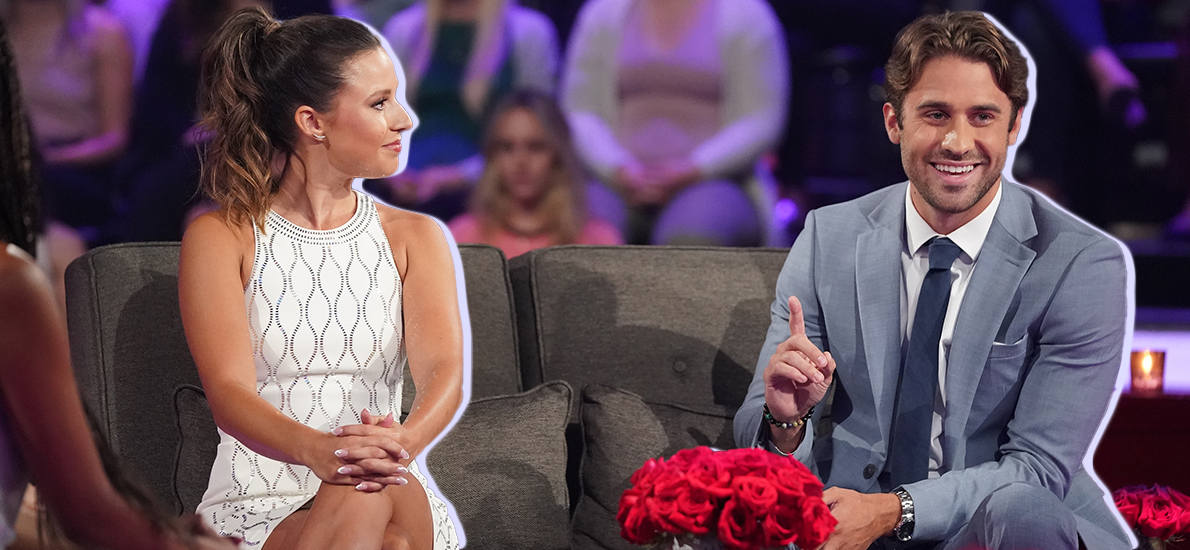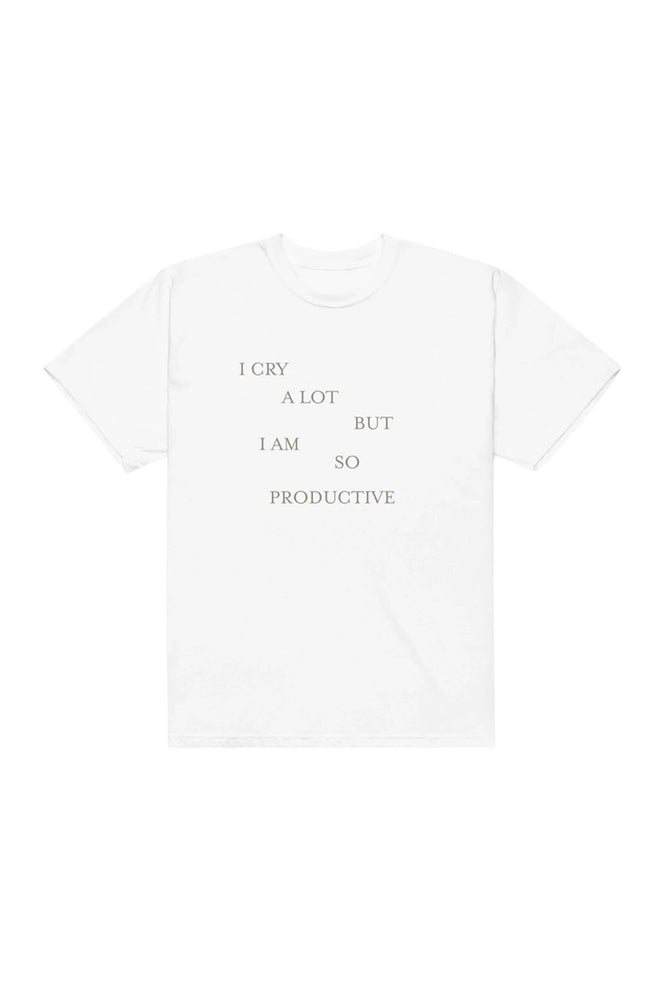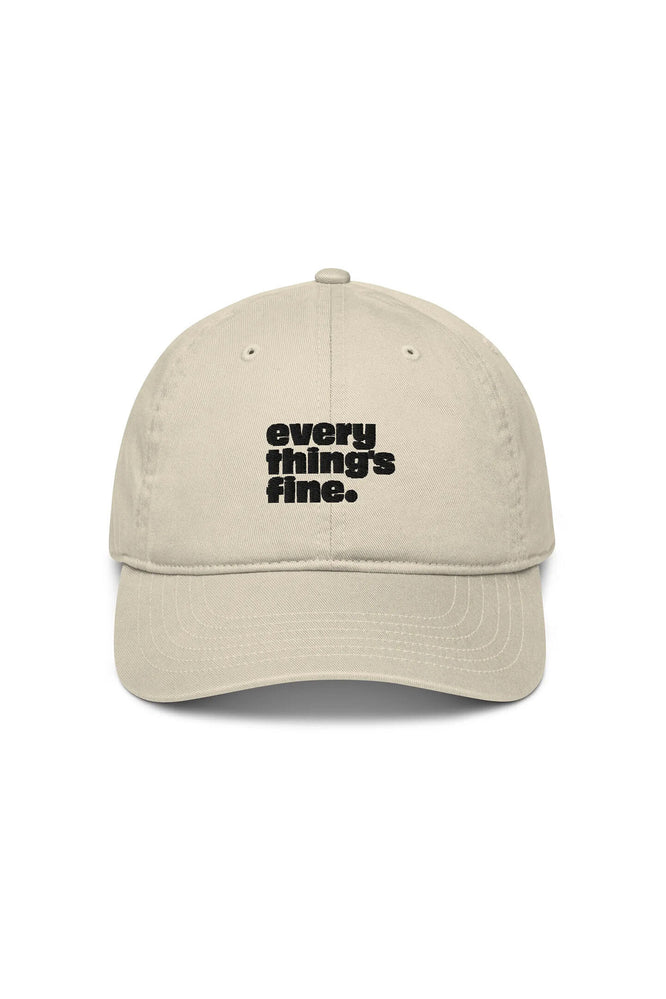Okay yes, we’re still talking about this. But this one has been a real journey and honestly, those of us who have committed to 3-hour, back-to-back, Greg Grippo-focused episodes of The Bachelorette have been through a lot, and the least we could do is learn a lesson at the end of all this. In case you need a reminder (you don’t), recently millions of people watched as Greg Grippo, one of three contestants remaining on season 17 of The Bachelorette, had an intense emotional meltdown when the lead, Katie Thurston, was unwilling to communicate her love to him in a way that felt reciprocal. He said, “You fill a hole in my heart.” She said, “Nice face.” I’m paraphrasing—a little. A meltdown ensued, an unexpected and painful (for all of us) breakup followed, and Bachelor Nation took to the streets (social media and podcasts, primarily), to debate: Team Katie? Team Greg? Was Greg gaslighting or having a justified emotional response? Was Katie cold and withholding? The answer, I think, is yes. Both things, all things. Whatever reaction you had to those horribly uncomfortable breakup scenes likely held some truth, because ending relationships is complicated and messy and usually pretty gross. For the record, as a Master’s-level Counselor with professional experience in relational communication, there are some specific examples of gaslighting behaviors in their interactions and I bet if we got to watch back any of our own breakups, we’d see some gaslighting there too. Humans with big emotions, especially about love and intimacy, will do some wild things to get what they want, including using tactics to confuse and manipulate each other.
Let’s be clear about one thing, though. While we might not all agree on the level of gaslighting Greg Grippo engaged in here, he most definitely wrote us a playbook for Emotional Manipulation 101. He relies on the narrative that being with Katie is the only thing that’s made him happy in the two years since his dad died. His family and friends then come in to reinforce this, telling Katie that he just hasn’t been himself, but now that she’s here, the Greg they know is back. Yikes.
I believe them. I believe that Greg is finding joy in this process and that he is genuinely feeling lighter and happier. I don’t think he’s acting (ahem, cue the Meryl Streep moment). I think he’s coming out of very regular, grief-induced depression because he’s had time to heal and now he’s on a TV show with a bunch of dudes he likes to hang with and a cute girl he likes to make out with, mostly in the rain. (In the desert. It’s fine.) But to frame his happiness as solely dependent on Katie is setting a fertile ground for a relationship built on emotional responsibility and caretaking. It’s so much to take on. And it’s manipulative.
And this, my friends, is a lesson we can all learn. If watching Greg and Katie in these final scenes together felt just a little too familiar, then it’s likely you have experienced emotional manipulation. You’ve probably even done it. Honestly, who hasn’t at some point? A little silent treatment here and there can be pretty passively impactful. Or maybe using the old “Well if you don’t know why I’m upset, I’m not going to tell you!” technique when you can’t articulate the reason for your feelings, you just know you’re having them and someone needs to pay attention ASAP! Storming out of the room during an argument without telling your partner you plan to return? We’ve all done it. These are all forms of emotional manipulation we see Greg use. They aren’t healthy modes of relational communication, but we’ve all done them, haven’t we? We’re all human here. If these are your primary methods of communicating during conflict, then maybe the lesson for you here is to practice something new. Maybe begin practicing expressing your emotions directly and clearly. Maybe examine why it might not feel like you can? We could all probably work on this more, and maybe GG was sent here to inspire us. Get to work!
Or, hear me out, maybe you watched all this go down and had an even stronger reaction. Maybe you were like me and the familiarity was TOO specific. Maybe, like me, you’ve lived it over and over again. Honestly, any moment of the GG drama could have been picked from any of my previous relationships. This is because I have spent a lifetime choosing partners out of a compulsion to be with highly emotional people who depend on me for emotional caretaking. I have been “Caught in the Grip(po)” of this compulsive cycle without ever even knowing why or how until recently.
It turns out, I have a thing called Love Avoidance. It develops through some specific childhood trauma related to family enmeshment and it manifests into issues with intimacy. There is a range for Love Avoidance, but mine happens to be severe. Unlike avoidant attachment, which people seem to be more familiar with, a Love Avoidant craves intimacy. We don’t run from it—we seek it out. But because in childhood we took on some kind of overly mature role protecting or nurturing our families, we think we can only be loved by people if they need us to manage their emotions or they depend on us to take care of their emotional needs. Like, a lot. In fact, we take this role with so much determination that we become absolutely suffocated by it. Intimacy feels like drowning. Maybe even dying. It’s called Engulfment and we engage in all kinds of avoidant behaviors to find relief from it, but because it’s a cycle, we continue the compulsive behavior of choosing people who need emotional caretaking because they will let us. And then we all end up in the cycle again. It’s pretty torturous for everyone involved.
The good news, for people who experience some level of Love Avoidance, is that you can recover. The first step is the most difficult one because it requires some brutal honesty about our choices and patterns. But it’s just possible that Greg Grippo can help.
Do you constantly choose a partner with high emotional needs? Are you drawn to the Greg Grippo in the room, someone who needs constant reassurance and/or attention? The person whose eyes seem to be masking something intense and mysterious? Do you always pick partners who have an emotional connection or response to every single thing that happens? Do you feel constantly drained in your relationships but still choose people who just need and take so much from you? Do I sound like a 2am infomercial trying to convince you to buy my self-help program DVD box set? Yes. I do. And I’m sorry, but this could be really important if it’s the first time you’re hearing it!
Before my recovery, I would have been obsessed with Greg. It would have become a full-blown TV crush by the end of the season. From night one, I would have chosen him. He would have had his emotional meltdown and shown his propensity for emotional manipulation, and I still would have chosen him. I would have taken care of all of his emotions and he would have let me until we destroyed each other. We don’t get “Caught in the Grip(po)” over and over again because of “fate” or “true love.” We do it out of compulsion. It took a series of devastating losses (and a lot of therapy) for me to recognize these patterns in my own life. Maybe watching Katie Thurston making a different choice this season will be the start for you.
Image: Craig Sjodin / ABC











































